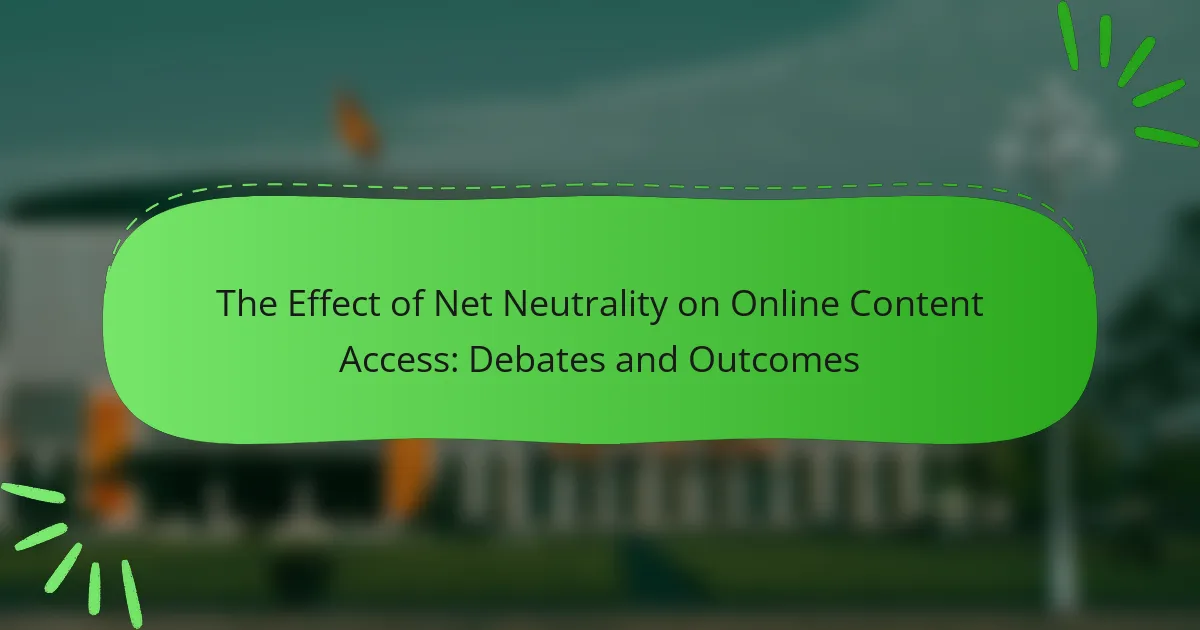Net neutrality is a principle that mandates equal treatment of all internet traffic, preventing internet service providers (ISPs) from blocking or throttling access to specific websites or services. This article examines the implications of net neutrality on online content access, highlighting the potential risks of allowing ISPs to prioritize their own content or that of […]
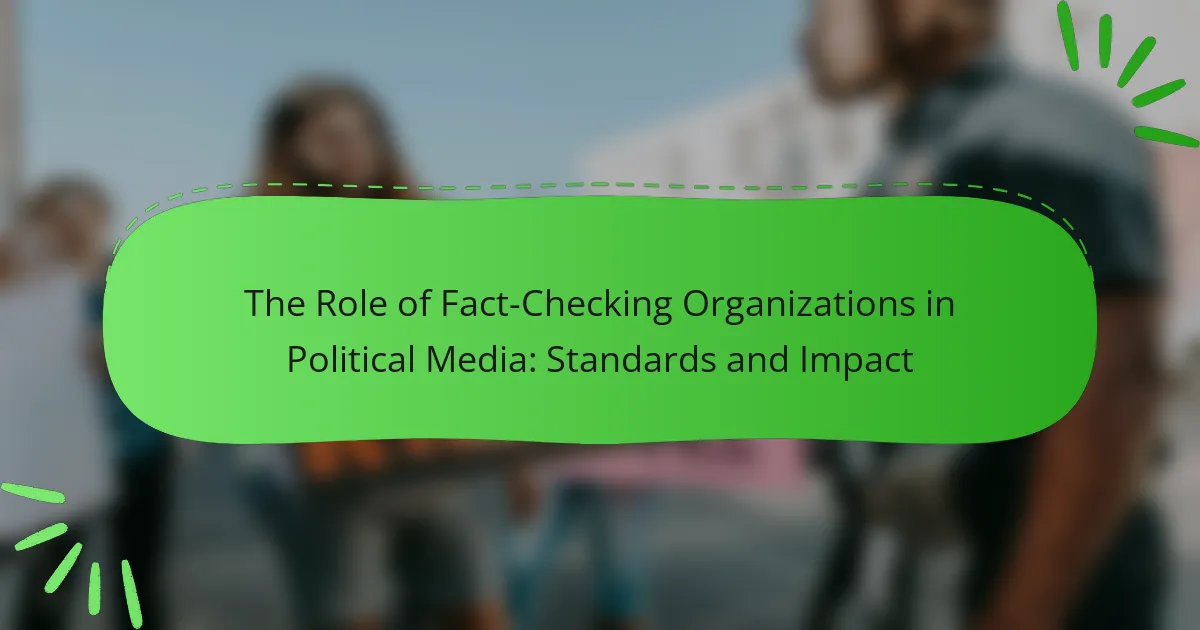
The Role of Fact-Checking Organizations in Political Media: Standards and Impact
Fact-checking organizations are independent entities dedicated to verifying the accuracy of claims in political media, with the goal of combating misinformation and promoting accountability among public figures. These organizations assess statements from politicians, media outlets, and influential sources, providing evidence-based evaluations that help the public differentiate between factual information and falsehoods. By adhering to rigorous […]
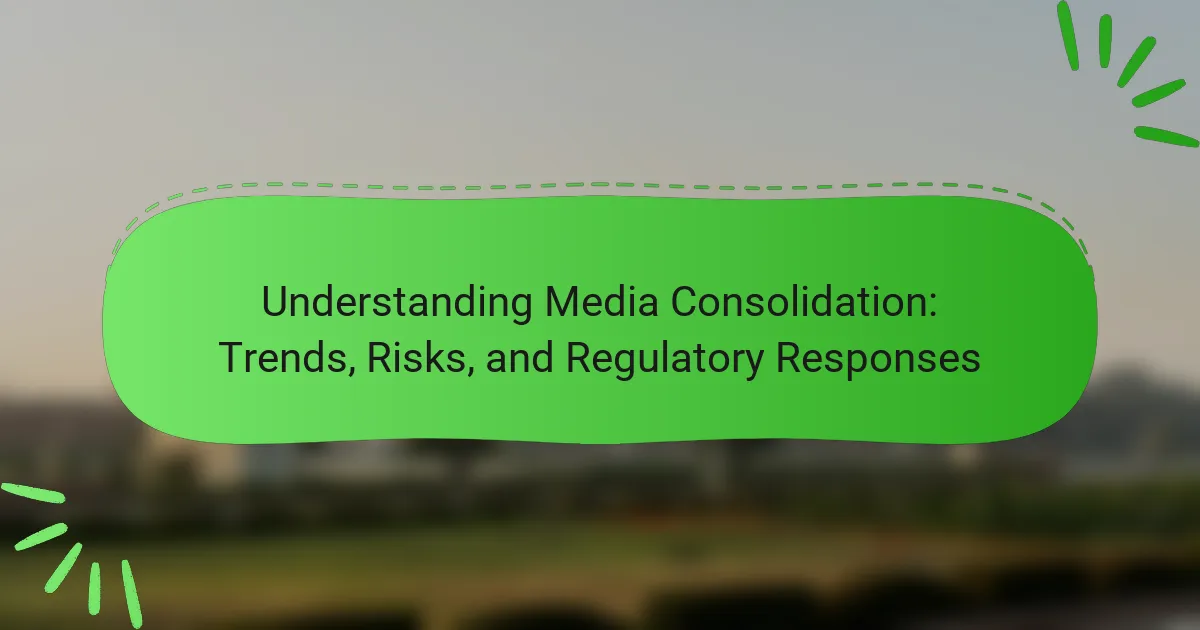
Understanding Media Consolidation: Trends, Risks, and Regulatory Responses
Media consolidation is the process in which a small number of large companies own multiple media outlets, leading to reduced diversity of viewpoints and content. This trend can result in monopolistic control over information dissemination, limiting competition and the quality of journalism. The Telecommunications Act of 1996 in the United States significantly accelerated this consolidation, […]
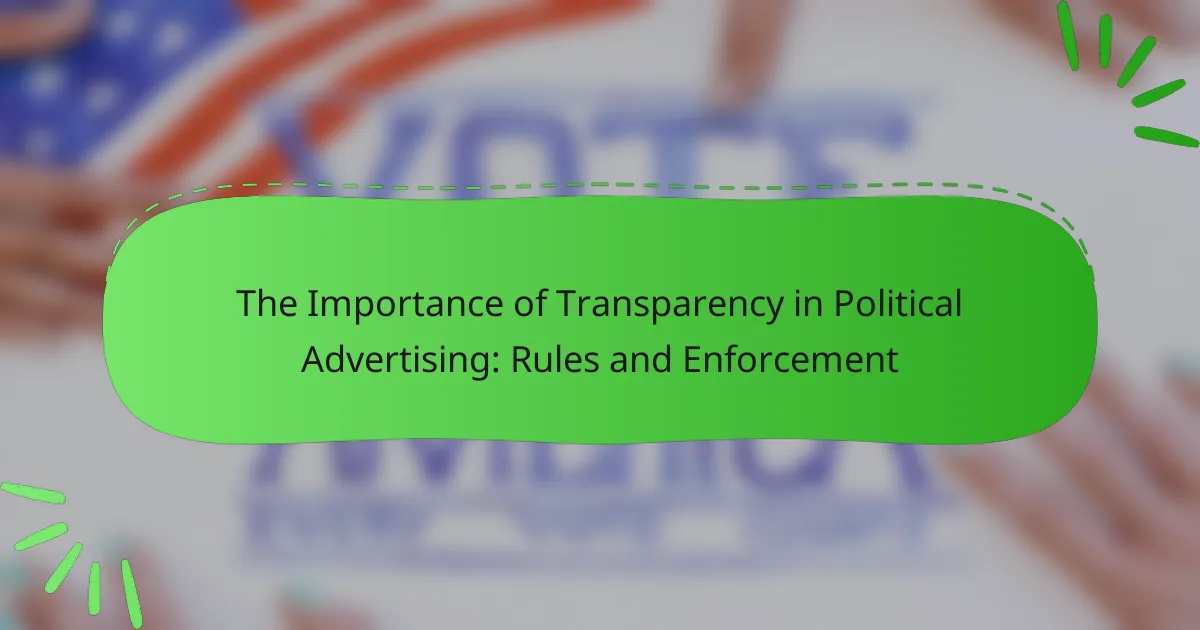
The Importance of Transparency in Political Advertising: Rules and Enforcement
Transparency in political advertising is essential for fostering public trust and ensuring informed voting decisions. This article examines the significance of transparency, highlighting how clear disclosure of funding sources helps prevent misinformation and promotes accountability among political actors. It outlines the regulations governing transparency, including federal and state laws that mandate the identification of sponsors […]
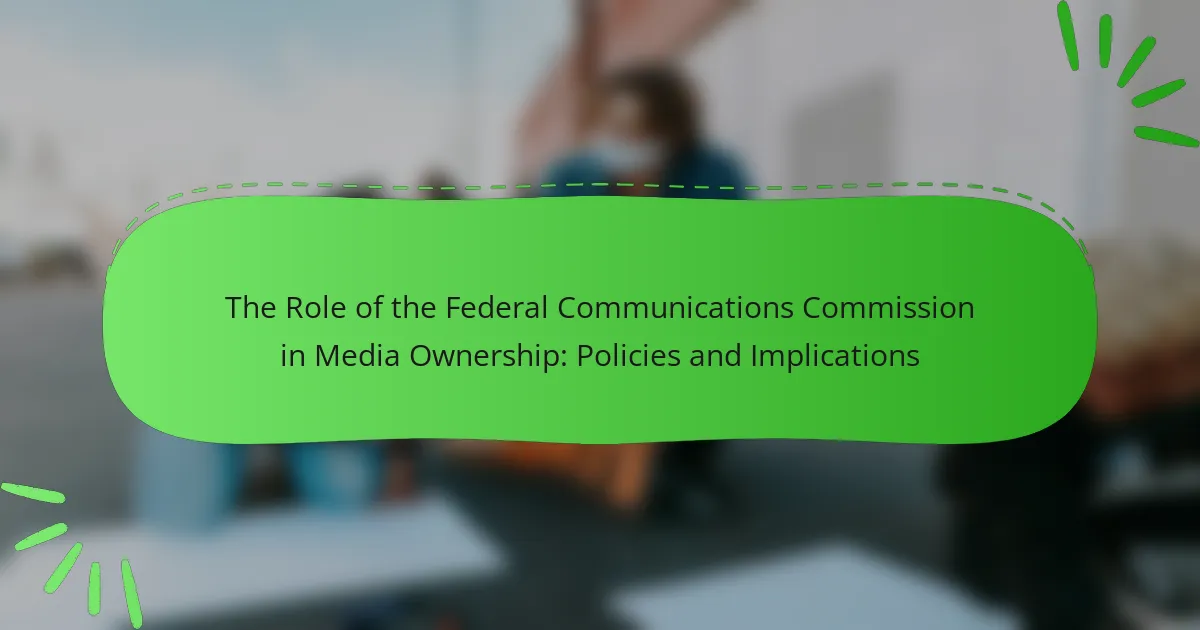
The Role of the Federal Communications Commission in Media Ownership: Policies and Implications
The Federal Communications Commission (FCC) is the regulatory body responsible for overseeing media ownership in the United States, with a focus on promoting competition and diversity within the media landscape. This article examines the evolution of FCC media ownership policies since its inception in 1934, highlighting key developments such as the implementation of the Fairness […]
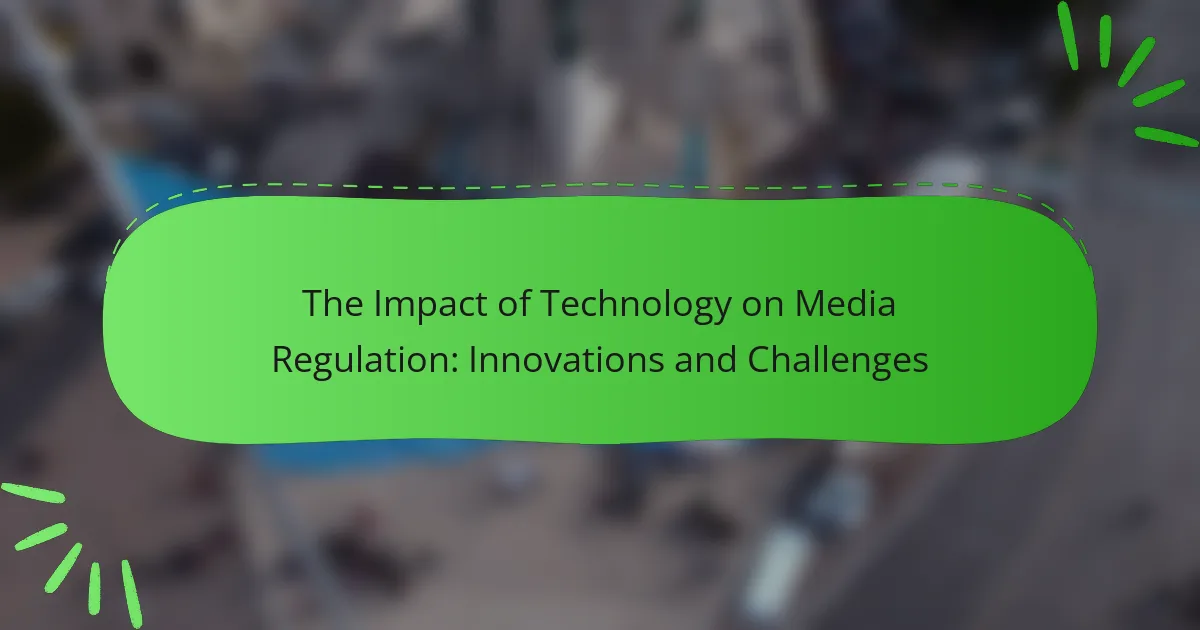
The Impact of Technology on Media Regulation: Innovations and Challenges
The article examines the impact of technology on media regulation, focusing on how advancements in digital platforms affect content production, distribution, and consumption. It highlights the challenges faced by regulatory bodies in enforcing traditional regulations, particularly regarding the rapid dissemination of information on social media and the amplification of misinformation by algorithms. The discussion includes […]
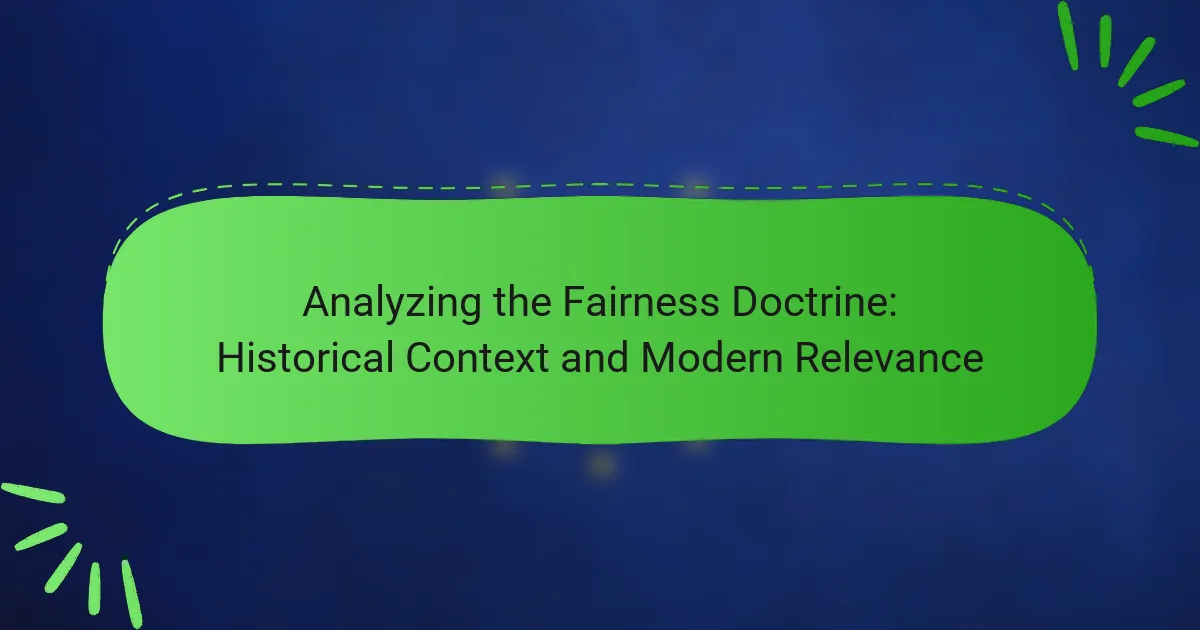
Analyzing the Fairness Doctrine: Historical Context and Modern Relevance
The Fairness Doctrine was a policy implemented by the Federal Communications Commission (FCC) in 1949, mandating that broadcasters present controversial public issues in a balanced manner to ensure diverse viewpoints were represented. This policy aimed to foster equitable discourse in media but was abolished in 1987 due to concerns that it restricted free speech and […]
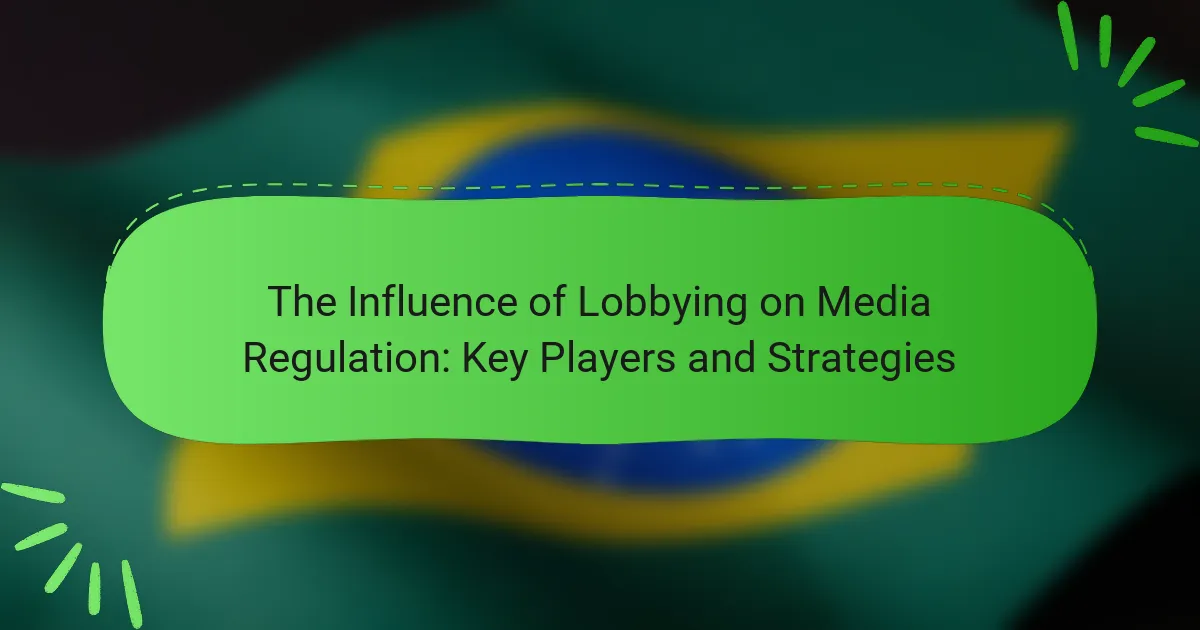
The Influence of Lobbying on Media Regulation: Key Players and Strategies
Lobbying plays a crucial role in shaping media regulation by influencing policy decisions and legislative outcomes. Various entities, including corporations, advocacy groups, and trade associations, employ lobbyists to advocate for regulatory frameworks that align with their interests. This article examines the strategies utilized by these key players and highlights the significant impact of lobbying on […]
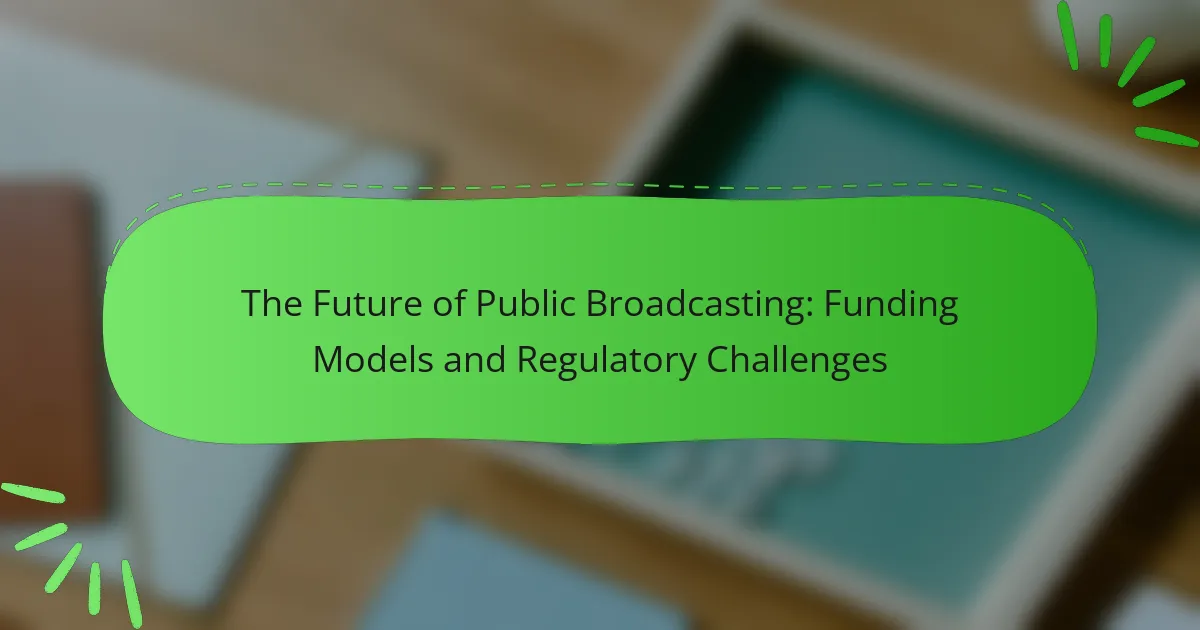
The Future of Public Broadcasting: Funding Models and Regulatory Challenges
Public broadcasting is facing key challenges that include funding sustainability, audience engagement, and regulatory pressures. The decline of traditional revenue sources, such as government support and license fees, is compounded by competition from digital platforms. To remain relevant, public broadcasters must innovate by adopting digital platforms, interactive content, and data-driven programming that cater to evolving […]
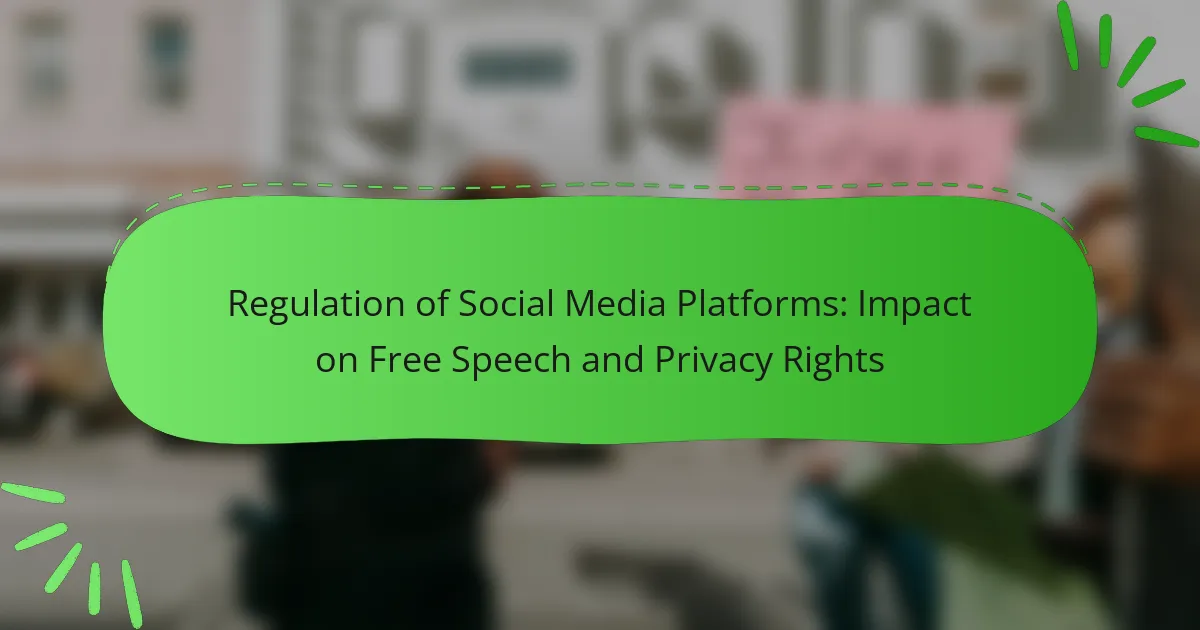
Regulation of Social Media Platforms: Impact on Free Speech and Privacy Rights
Regulation of social media platforms encompasses the legal frameworks that govern their operations, focusing on user safety, data privacy, and content moderation. These regulations, implemented by governments globally, aim to combat issues such as misinformation and hate speech while ensuring transparency in data usage and user consent. The article examines the impact of these regulations […]
